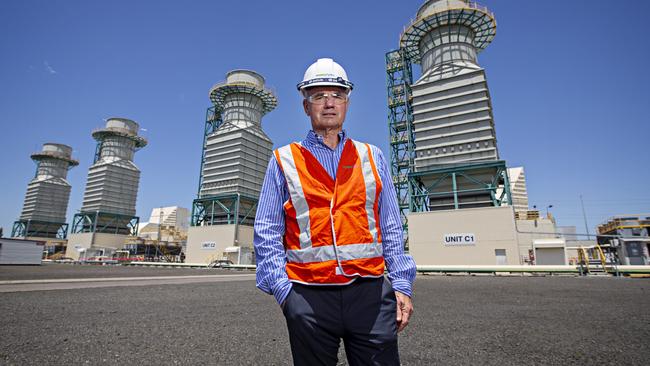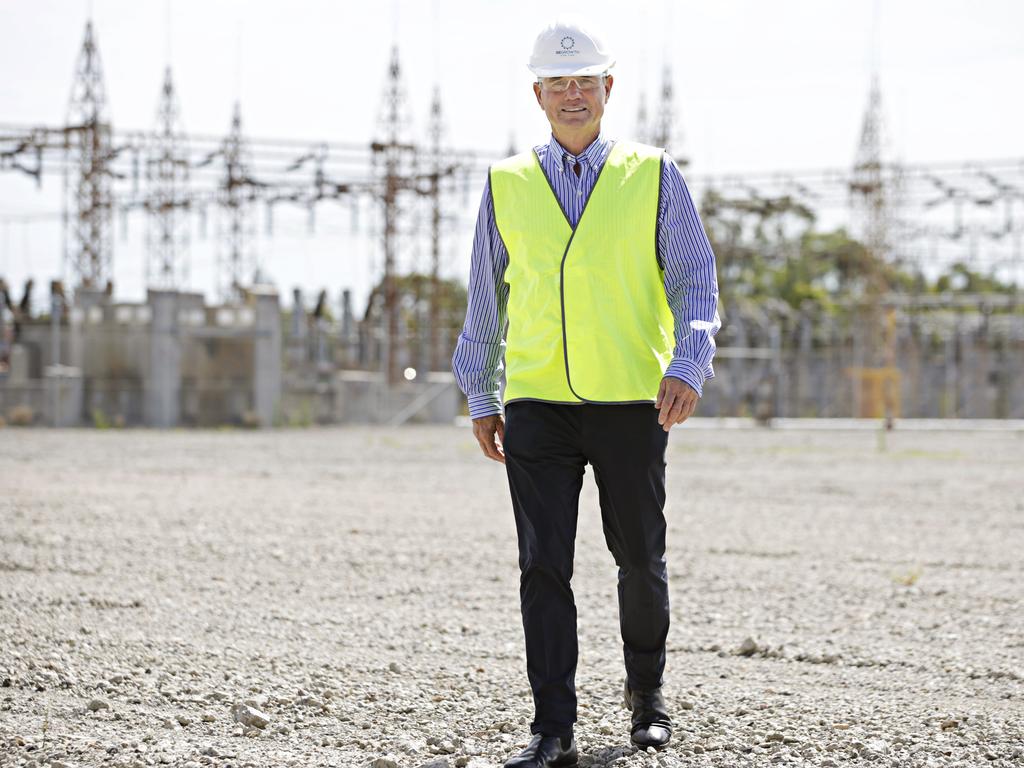
Like everything in the energy debate, this line splits the market, with Snowy boss Paul Broad backing the long-running push by Energy Security Board chief Kerry Schott and others, but AGL for one is more reluctant.
In a speech Broad’s shareholder, Energy Minister Angus Taylor, will be less forthright, supporting “value-for-money construction of new transmission — but only where it is needed. Transmission costs will be baked into bills for decades, so new investment needs to be carefully considered”.
Some might say the same about the $600 million spent on Kurri Kurri.
It all gets down to incumbent market position. As the biggest coal generator in the land AGL has the transmission grid running its way right now but in the future just about everyone agrees with Broad that the explosion of renewables demands a rethink.
This comes as energy retailer Enova has asked the ACCC to examine price fluctuations in the energy market in recent weeks. Big spikes have come despite no known demand issues.
This is the season for energy plant slowdowns, which may have caused some issues, and AGL customer Tomago has also cut its production voluntarily under the terms of its contract.
Separately, the Victorian regulator has confirmed Telstra has applied for a licence to sell gas and electricity, as announced last year.
The company declined to give further details, but in an age of virtual power networks the door is wide open for the likes of Telstra to break in.
Virtual networks combine the needs of individual residential and industrial consumers operating with solar and other power to access the network on a grander scale.
Broad will front the Senate committee on energy and communications while his offsider Gordon Wymer will be addressing the Energy Week conference in Melbourne.
Both will be asked to justify the federal government’s recent decision to spend $600 million on a new Kurri Kurri gas peaking plant to offset the 2023 closure of the Liddell power plant.
Energy Minister Angus Taylor will open proceedings on Tuesday morning, so he will address the issue himself.
Taylor will argue for a more balanced approach, saying “pumped hydro with deep storage, transmission between states, and batteries can all play a role”.
“Ultimately we need balance between these technologies and between intermittency and dispatchability,” he will add.
Taylor will defend his decisions, saying Broad’s “Snowy 2.0 is on track to deliver the largest electricity storage operation in Australia, with costs of storage at a fraction of alternatives. This will allow the increasingly excessive supply of solar to be stored during the day and used when the sun goes down”.
The conference will be looking for more long-term vision from Taylor on just where he sees the market post-2025 and longer.
NSW and Victoria have set longer-term horizons to let the market meet the plans.
NSW Energy Minister Matt Kean can be expected to detail his plans for the electric vehicle market in the state soon.
Taylor will repeat his warning to the states for showing too much vision, arguing “an unco-ordinated approach will lead to unco-ordinated investment and higher prices and greater reliability risks. As I have said, disunity works to the detriment of energy consumers”.
The states argue what is needed is federal leadership but then that gets down to what sort of leadership, which is where the battle begins. As for Taylor, he sees his remit as simply getting prices down.
Broad has won government backing for Kurri Kurri and Snowy 2.0 which will give him 63 per cent market share in the 20 per cent of the market which is subject to commercial reinsurance known as caps.
He argues the existing players self-insure, which has sent cap prices falling in recent months.
ACCC chief Rod Sims has yet to comment on Kurri Kurri, but after Snowy 2.0 was announced four years ago he said the regulator would consider its potential impact on the market before it starts operating in 2025.
The Kurri decision would seem to hasten the need for that consideration.
The federal government’s Snow Hydro plan is already the most powerful player in the insurance or caps market for NSW, Victoria and South Australian power, and the decision to proceed with the Kurri Kurri gas peaking plant increases that power.
Putting to one side issues about committing taxpayer funds to a new gas plant the major concern with the $600 million investment is increased market power for one company which happens to be owned by the federal government.
That point appears lost in the politics of the plant.
ITK’s David Leitch described the government decision as a “disgrace”, arguing it should have subjected the decision to public review.
The ACCC for one is concerned when government entities have the potential to exploit market power, yet that is exactly what is happening now.
The electricity market is a complex beast for outsiders but basically it runs on a series of contracts by the hour with the spot price around $45 per unit.
At times that price may range from negative $1000 to positive $14,500 and to protect themselves retailers buy caps or reinsurance contracts which limit the upside to $300.
Those contracts are a key source of revenue for the government-owned Snowy Hydro.
Hydro power is brilliant for the purpose because all it does is open the gates and electricity is produced instantaneously.
Even if Kurri only runs for 2 per cent of the time that is enough to be a major influence on the overall market.
Gas takes a little longer to get going and coal takes a long time which is why the decision to build Snowy 2.0 was a financial boon to Broad at Snowy Hydro and Kurri a bonanza.
There are simply no other players in the market in NSW or Victoria with the ability to play the market as it does.
On one hand Energy Minister Angus Taylor says he is building extra capacity to keep the prices lower.
On the other he is increasing Snowy Hydro’s power to give the government-owned vehicle increased market power.
It simply doesn’t make sense.







The Snowy Hydro brigade will be out on force on Tuesday banging the drum about increased transmission investment to better serve consumers and break the power oligopoly.